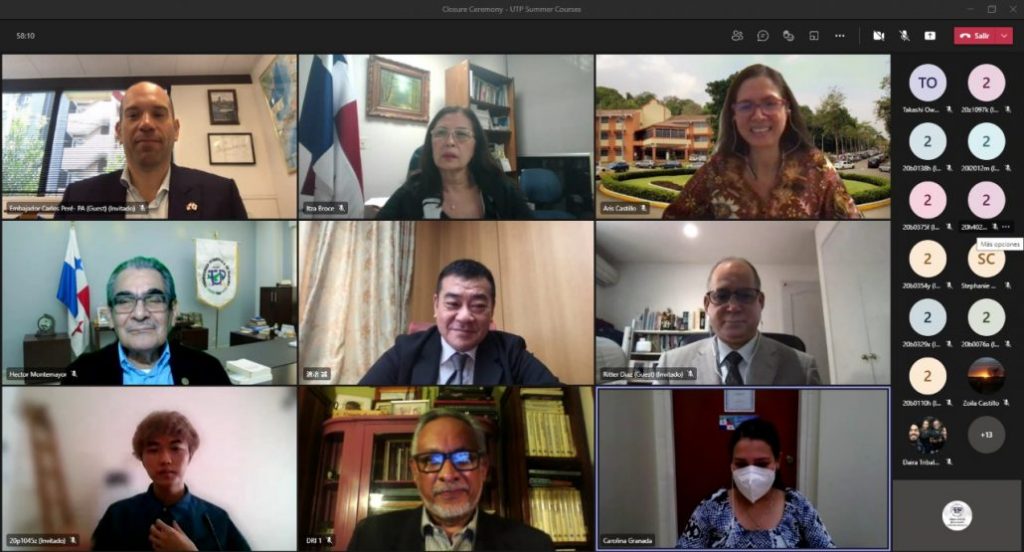Closing Ceremony of Short Online Program between Chiba University and the Technological University of Panama

On September 28, 2021, took place the closing ceremony of the first short online program between Chiba University and the Panama Technological University.
The short online program is part of JAPOLAC’s Program for University Internationalization, which seeks to introduce practical and distinctive knowledge of Latin American and Caribbean countries (LAC) to Japanese university students, encouraging them to visit and study in the LAC region.
The three-week short-summer online program included courses such as a brief history of Panama and its Canal, Panama as Logistic Hub, Basic Spanish and Forest Engineer in the Central American Tropics.
Japanese students did not only learn practical knowledge about Panama, but also were able to put in practice their international communication skills as all courses were taught in English language, except basic Spanish. One participant Japanese student said, “it seems English and Spanish look similar, but Spanish sounds are closer to Japanese”.
The closing ceremony counted on the participation of the President of the Panama Technological University, Mr. Hector Montemayor, and the Vice-President for Education and International Affairs of the University of Chiba, Mr. Makoto Watanabe. It also counted on the honorable presence of H.E. Carlos Pere, Ambassador of Panama to Japan and H.E. Takashi Owaki, Ambassador of Japan to Panama, as well as Mrs. Itza Broce, Acting Director of International Cooperation of the Ministry of Foreign Relations of Panama.
The Director Representative of JAPOLAC, Dr. Ritter Diaz, expressed his gratitude to Chiba University and the Panama Technological University for joining the Program of University Internationalization, which will create greater knowledge and connection between students of Japan and the countries of LAC.
JAPOLAC aims at promoting practical educational exchanges between Japan and LAC as well as connecting universities with productive forces of society to better prepare students for a changing labor market.
